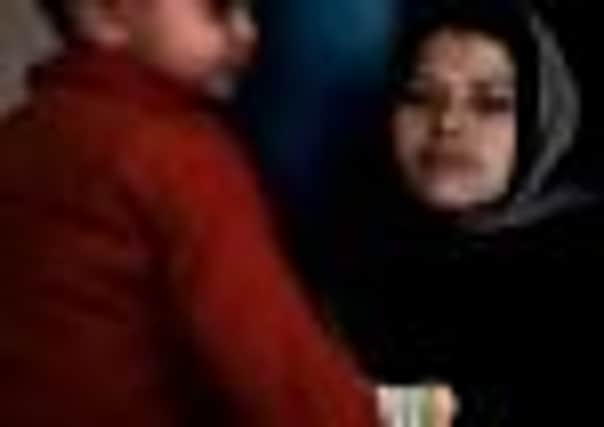Freed from jail: Afghan rape survivor to wed her attacker


But yesterday her resolve had disappeared. Moments after Afghan president Hamid Karzai issued a pardon, Gulnaz agreed to marry her attacker.
The 19-year-old was jailed for 12 years for adultery after she told police she had been raped by a relative. She gave birth to a daughter in prison.
Advertisement
Hide AdAdvertisement
Hide AdMr Karzai summoned his justice minister, the attorney general and the head of Afghanistan’s supreme court to review her case yesterday, after her ordeal was revealed last month.
They agreed she should be released, but said she had agreed to marry the rapist. “This was not a condition of her release, this was her choice,” insisted Aimal Faizi, Mr Karzai’s spokesman.
Gulnaz’s had originally tried to tell her story in a documentary commissioned by the European Union, but EU diplomats banned it, citing concerns about their relations with Afghan institutions, and fears for Gulnaz’s safety, and that of other women portrayed in the film.
Afghan officials said Gulnaz agreed to marry her attacker yesterday at a meeting with the attorney general and the justice minister, who went to the prison after meeting Mr Karzai.
Her lawyer, Kim Motley, who was at the prison gates, was blocked from going in. “When I saw her Tuesday, she said, given a real choice, she would not marry him, she would marry an educated man,” Ms Motley said.
In footage from the documentary seen by The Scotsman, Gulnaz spoke hatefully of the man in filthy clothes who barged into her home, bound her hand and foot, gagged her, and robbed her of her honour.
“My rapist destroyed my future,” she said. “No-one will marry me after what he has done. The judge said I should marry him but I refused.”
But at other times she contemplated the unthinkable – spending the rest of her life with her rapist – because she didn’t want her daughter growing up fatherless. “I must marry him for my baby’s sake,” she said. “I don’t want people to call her a bastard … I want my daughter’s future to be better.”
Advertisement
Hide AdAdvertisement
Hide AdLeslie Knott, the film’s producer, said Gulnaz often felt trapped. “She said many, many times, ‘I don’t want to marry my rapist.’ But she has said that the only way to have a father for her child and to bring peace between the two families was to marry him,” Ms Knott said. “She said she had no other option.”
More than 6,000 people had signed an online petition demanding Gulnaz’s release, by the time Mr Karzai reviewed her case. British ambassador, Sir William Patey, urged him to pardon her. Staff at Badam Bagh, the women’s prison, said Mr Karzai has now also ordered a review of every inmate’s case in the wake the publicity.
The governor, Colonel Amir Amwajpur, said prosecutors and justice ministry officials were poring over old cases.
Vygaudas Usackas, the EU ambassador who censored Gulnaz the first time she tried to speak out, said he was “delighted with the news [she] is to be freed”.
“Her case has served to highlight the plight of Afghan women who, ten years after the overthrow of the Taleban, often suffer in unimaginable conditions, deprived of even the most basic human rights,” he said.
Although the film, In-Justice, remains censored, Mr Usackas also claimed that, “highlighting and improving the lives of Afghan women is one of the most important tasks of the EU’s mission in Afghanistan”.
In a final twist, Mr Karzai’s office said Gulnaz had demanded one of her rapist’s daughters wed her brother – in a swap known as badal – so there is one of his relatives in her family’s house as collateral against further abuse.